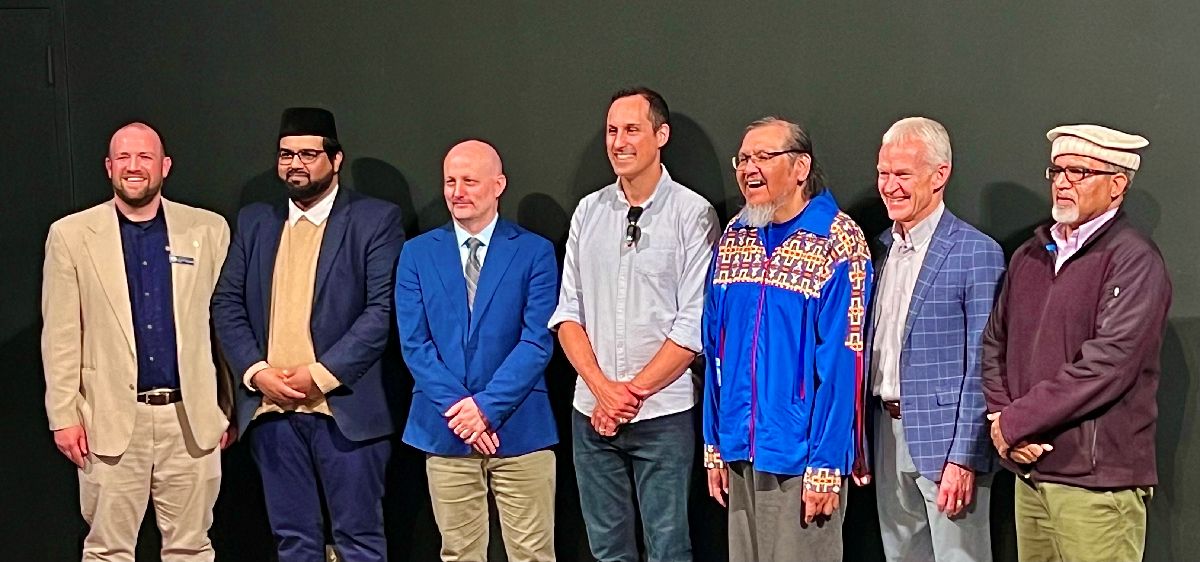Everyone communicates but few connect.
– John Maxwell
Our newly hired hand arrived early. When I saw an old man riding a rusted bicycle up our gravel road in the pouring rain and into the yard of our family farm, I wondered, “Who is this slightly scary, weird-looking guy, whistling and smiling, dressed in worn-out coveralls, a flannel shirt, a torn jacket, and rubber boots?”
I was a teenager and was expected to work with this newly hired hand—whose name was Norris—for the summer. I didn’t want much to do with him at first. I just hung around for a few days and quietly worked alongside him.
He didn’t seem to mind that I wasn’t talkative. He simply went on about his business. At the time, I thought it was a little odd that no matter what the weather was like, or if we were fencing or building something or hauling hay, Norris always showed up on time and was happy. Except for a short lunch break, he never stopped working and never complained. Whether we were fencing, hauling hay, cleaning stalls, building a corral or a barn, or working with the horses, from the moment he arrived until the moment he got back on his rusted-out, single-gear bicycle at the end of the day and peddled off, he was always smiling. Always whistling. Always working. Never grumpy. Always the same steady mood.
We ended up working together for three summers, and in those six shorts months, Norris changed my life. While I could never have articulated it then, here’s some of the things I learned from him:
- Relationships are mostly about showing up. Being reliable, being able to be counted on, being calm under pressure, being steady in the storms – all go a long way in building unspoken trust.
- Norris, through his safe and steady presence, taught me to bond with horses rather than break them. People have a lot in common with horses. A horse doesn’t progress or perform as you want it to because you demand that they do so or because you threaten them. Horses, like people, will enlarge their capacity only when they have the right conditions and are given the proper care. You don’t have a right to the trust of another. You must earn it.
- You can have huge influence on others when you’re comfortable with yourself. You make a difference when you don’t have to pretend or impress or try to make yourself big or others small to prove that you are someone that you aren’t.
- Listen more than you talk. In all the time we worked together I can’t tell you one thing about Norris except what I saw. As a self-absorbed teenager, I never took the time to listen like he listened to me. I never asked anything about him. I only knew that he had only a grade seven education and was a bachelor who lived in a dirt shack (my father drove me there once) and was very selective about who he worked for. He liked and respected both my parents.
- Bring a firm handshake to everyone you meet. One of the only times I saw Norris’s gruffness was the first time I shook his hand. “You shake a hand like a fish,” he told me. “If you are going to go anywhere in life, learn to shake a hand like you mean it.” I found out that shaking a hand firmly is a confidence builder.
- Assess your ignorance. Always be a student. Everyone has something to teach you. Be a learner, not a knower. Humility goes a long way to earning trust. Norris was always curious, a consummate scholar of life.
- Pound a nail with your arm, not your hand. While building the new round corral one of those summers, Norris shook his head as he watched me pound in a nail. Quietly he took my hand with the hammer in his hand and taught me how to pound a nail with accuracy and the least amount of effort. “You have to drive a nail with your whole arm,” he told me, “Not your wrist. You’ll wear yourself out doing that.”
- Attitude makes a big difference. I once asked Norris how he can be so happy all the time. In his defined Scottish drawl, he responded, “Happiness, young man, is not a destination. Happiness is a method of travel.”
Years after I left home, and after my parents sold the farm, I received a note from one of my former neighbors telling me that Norris had died. The old dirt shack he lived in caught fire and burned to the ground. He passed away in the middle of the night, alone.
I’m sure that Norris had no idea of the impact he’d had on my life, and how that impact created ripples in time that will go on to generations yet unborn. Not just impact in the here and now, but in the here and forever. People who influence us are like that. They come into our lives at important junctures, sometimes intentionally with a request, and sometimes unexpectedly—like a passerby who stops to help us when we’re stranded in our broken-down vehicle. Most never know the difference they make.
Our world seems to be more and more in flux. Things seem more unsettled and unpredictable. I’m not sure that the use of our devices has really helped us get more connected. I think John Maxwell got it right. Everyone communicates, but few connect.
Are you connecting?



